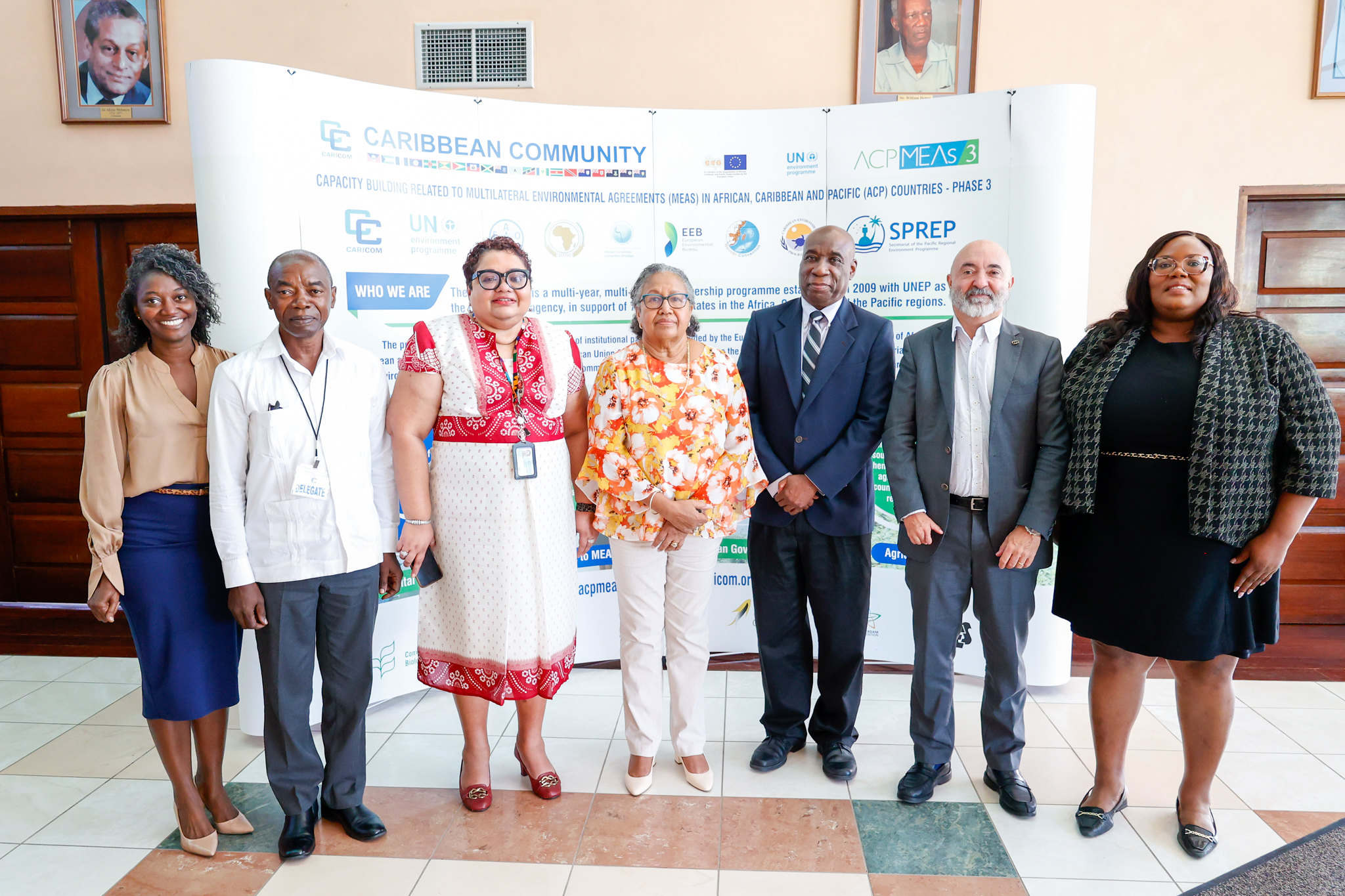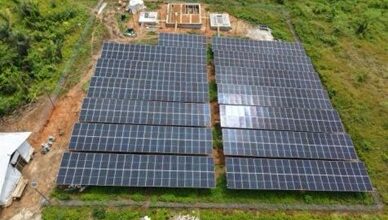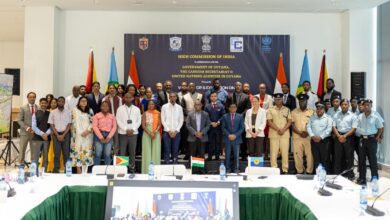- Mr. Joan NADAL SASTRE, Head of Cooperation, Delegation of the European Union to Guyana;
- Dr. Wendell Samuel, Senior Economic Adviser to the Secretary-General and Acting Assistant Secretary-General, Economic Integration, Innovation and Development;
- Representatives of regional institutions
- Other Distinguished Guests
- Staff of the Secretariat
Good afternoon.
I am pleased to have been here for this ceremony. I welcome our distinguished guests who have joined us and thank them for their presence.
Ladies and Gentlemen,
Capacity Building for Multilateral Environmental Agreements (MEAs) in African, Caribbean and Pacific (ACP) Countries (The ACP MEAs Project) was never just a project. Rather, it signaled a collective commitment by the African, Caribbean, and Pacific countries to ensure that the global agreements we have signed are not just words on paper, but tools and instruments to shape policy, drive action, and protect people and our planet. The Secretariat’s work in relation to Multilateral Environmental Agreements has focused on assisting Member States to strengthen their technical and institutional capacity to address environmental management issues.
Here in the Caribbean, our economies are intrinsically linked to the health of our ecosystems, and our people live on the frontlines of the battle against climate change, the linked biodiversity loss, and the impacts of hazardous substances on our fragile ecosystems. We, in the small island and low lying coastal developing states, suffer the greatest losses and have to make costly adaptation and mitigation investments, diverting scarce financing from social and economic investments, even though we contribute minimally to climate change.
This is the context in which we have prioritised the protection of our biodiversity, because we know it is not only the right thing to do, but also because it is necessary to do so.
The ACP MEAs Project has been a vital and impactful intervention. From strengthening institutional frameworks, to building capacity in environmental governance, and fostering collaboration among regional actors, we have seen tangible results:
- There has been progress in integrating multilateral environmental agreements into national policy;
- Government officials, civil society, local communities and young people have been empowered with knowledge and tools to be agents of change;
- We have built bridges between the ministries of environment, agriculture, fisheries, foreign affairs and finance, as sustainability demands a whole-of-government, whole-of-society approach;
- We have established complementary linkages and mutually beneficial partnerships with regional and international agencies to address overlapping issues across biodiversity conservation, and the sound management of chemicals and waste.
On behalf of the Secretariat and the Region, I extend appreciation to our development partners – the European Union, the Secretariat of the Organisation of African, Pacific and Caribbean Group of States, and the United Nations Environment Programme. Your support has been vital. We acknowledge our partner institutions – the OECS Commission, the Caribbean Biodiversity Fund, the Basel Convention Regional Centre for Training and Technology Transfer for the Caribbean, the European Environmental Bureau, and our National Focal Points. Your leadership has ensured that solutions are tailored to our unique Caribbean context.
We also thank all other supporting institutions, including the Secretariats of the Biodiversity, Basel, Rotterdam, Stockholm, Minamata, CITES and CMS Conventions, for their sharing of technical knowledge. We acknowledge their efforts to advance the mainstreaming and implementation of MEAs related to biodiversity and chemicals and waste, with a necessary focus on enforcement and compliance.
CARICOM will continue to play a lead role in preparing the Region to participate in relevant hemispheric and international processes. Our support and promotion will help to ensure the integration of environmental considerations and requirements as the Community’s policies are defined and implemented.
As this phase of capacity building efforts ends, we are not winding down; we are gearing up. The legacy of the ACP MEAs initiative will not be the reports, the training, or the pilot projects. It lives on in the strengthened institutions, the informed policymakers, and the empowered technical officers within our governments, our youth and our communities, who will carry this work forward. We are ever cognisant that the threats we face – climate change, biodiversity loss, land degradation, hazardous waste – will not wait, and neither should we.
To ensure continuity, CARICOM recently launched its Caribbean Community Environment and Natural Resources Policy Framework. We are actively completing the Caribbean Community Ocean Governance Policy Framework and have made progress with the Region’s Common Water Framework and Common Biodiversity Strategy. We hope that the legacy of the ACP MEAs Project will live on through the implementation of these regional public goods, and we welcome the active participation of all our partners in the implementation of these critical instruments.
For CARICOM, this close-out of an important and invaluable Project will not be the end. Rather, we are focused on implementation, innovation, and inclusive growth that places environmental integrity at the heart of efforts to secure a sustainable future for our Region.
Thank you very much, ladies and gentlemen.






